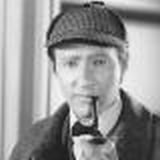Options
Deep Space Niners: Baseball and Gene's Vision
 Data1001
✭✭✭✭✭
Data1001
✭✭✭✭✭
Interesting article today about the focus on baseball in DS9 and how it correlated with the way the series revised the zero-conflict utopian future imagined by Gene Roddenberry.
https://deadspin.com/deep-space-nine-innings-a-star-trek-spinoffs-unlikely-1823440533

https://deadspin.com/deep-space-nine-innings-a-star-trek-spinoffs-unlikely-1823440533

Could you please continue the petty bickering? I find it most intriguing.
~ Data, ST:TNG "Haven"
0
Comments
However, it feels like the writer didn't really deep dive into TOS level Trek, though. As is illustrated in Amok Time, with T'Pring and Stonn, Vulcans are shown to be capable of being less than above board. Though they do go out of their way to not show any emotional connection to the actions. T'Pau and in other episodes Sarek and Spock show a benign condescension. Solok seems more in the vein of T'Pring to me.
From my perspective the real Vulcan change comes in Enterprise, where you have Soval and early T'Pol barely able to cover their contempt with humans in general. A point made in Broken Bow is how Vulcans not only consider humans inferior but it is their mission to make sure they don't spread. Like humans are animals to not be exterminated but to be contained.
T'Pol's petulant dinner over breadsticks (eaten with a fork) (for example) make having a game with Solok seem like a vacation. Perhaps it is because Archer is the more mellow, of the two captains, it's not perceived as intense. Sisko reacts boisterously, and is easily provoked, so perhaps it appears that Solok is more antagonistc.
Also, zero conflict seems over simplified. Journey to Babel was about someone trying to reignite a conflict between two Federation members. There was not a focus on war in the series at large, but had the Organians not intervened there was going to be the REAL Klingon/Fed war. Kodos the Executioner killed thousands believing in eugenics and survival of the fittest when food ran low and was a Federation planets governing official. But those like Kodos are shown as cautionary tales not as lead characters to be given spotlights and continuing exposure.
However, the difference you also see really in later Sisko, is the ability to do something morally wrong to get a 'good' result. In the Pale Moonlight is the quintessential example. However in DS9 era Trek, that is the exception not the rule. Kirk and Picard break rules but always with a moral high ground. And normally Sisko does as well but he crosses the moral and ethical line a time or two using the ends to justify his means. I think the inclusion of Garak and Quark, though they were in different cultures, had more of a morally challenging impact in some respects as well.
I know this is being used as a justification for the stark and dark Discovery, as this is usually where these discussions lead about abandoning Gene's vision and why it is 'necessary'.
The thing about Gene's vision, is that he sought to inspire whether it be through conflict or diplomacy, pain or healing. He challenged us all to be better people. Not perfect, but better. You could say that in many ways that was still seen for a time in some of the later writers. Braga not so much, but Taylor, yes. (and the list could be long and exhaustive). And DS9 still tackled issues in ways that with only a few exceptions the leads displayed the moral fortitude to do what would be perceived as the right thing even with they may not even want to that badly.
That's been the bulk of the criticisms of Trek all the way through Voyager. (Criticisms of Enterprise usually went to other aspects of the series.) I heard it for literally decades from the more hardcore Star Wars fans as well as many in the Buffy crowd. (The old FIdoNet, MSN and AOL forums were entertaining when those folks would stop by.)